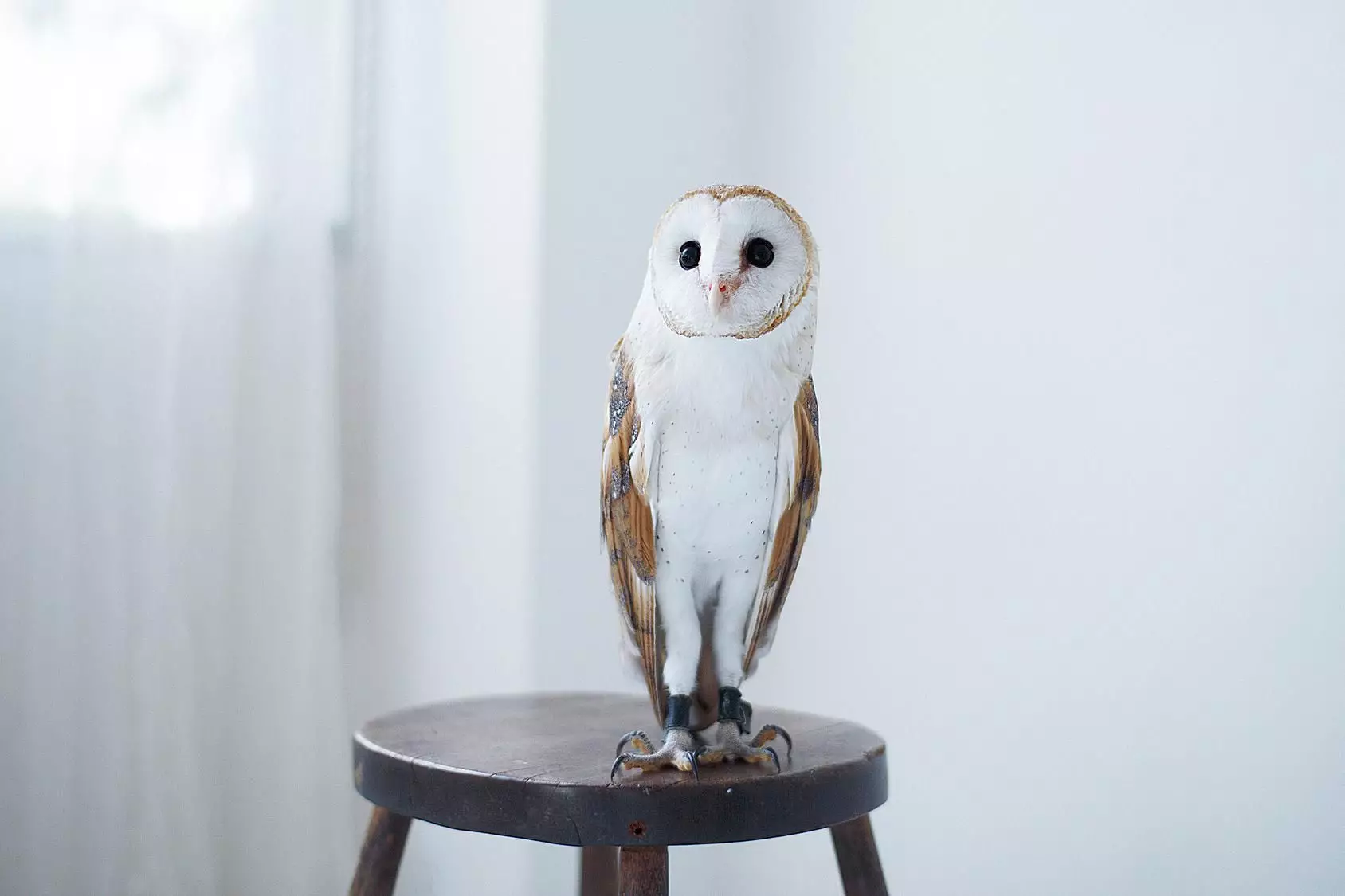Owls, with their captivating gaze and mysterious aura, have been romanticized in popular culture, appearing as friendly companions in literature and films such as the beloved Harry Potter series. The question arises: do these enchanting creatures truly make good pets, or does the charm painted by media mask a harsh reality? In truth, the prospect of keeping an owl as a pet is fraught with challenges that make them ill-suited for domestic life. Below, we delve into why these birds should be revered in the wild rather than kept in captivity.
To say that owls can be kept in standard living conditions is a gross oversimplification. Unlike parrots, which can adapt to life in a human family environment, owls require a unique habitat that mimics their natural surroundings. A common misconception is that a parrot cage would suffice for an owl; however, these birds need a spacious aviary that offers both indoor and outdoor space. Owls exhibit complex social behaviors and require ample room to exercise their wings and maintain their health. Regular exercise is vital for their well-being, as it ensures they remain fit and able to fly—something not achievable in the confines of a standard cage.
Moreover, these magnificent birds are meticulous about their hygiene. Owls require access to a clean bath pan to maintain their feathers. Their plumage aids in silent flight, crucial for hunting; any external noise due to unkempt feathers could imperil their natural instinct for stealth. The cleaning process, combined with the space requirements, poses a considerable challenge for potential owl owners who might underestimate their commitment.
Unlike their parrot cousins, owls do not possess a flock mentality. In the wild, they tend to be solitary creatures, forming tight bonds only with their mates and offspring. In a human household, this translates to potential aggression towards strangers and even household members. An owl is likely to perceive anyone outside its selected “mate” as a threat, which could result in territorial behavior, including aggressive attacks. This solitary nature contrasts starkly with the sociable disposition of many other exotic pets, particularly those from the parrot family that thrive in social settings.
Such behavioral tendencies complicate the dynamics of living with an owl. Should an owner find themselves ill or incapacitated, the owl could pose a significant challenge, not just for care but also for safety. In short, the very characteristics that make owls fascinating from a distance become challenges when considering them as pets.
Another vital aspect of owl care that potential owners must understand is the bird’s dietary needs. Owls are apex predators, featuring specialized nutritional requirements that the average pet owner may not be equipped to fulfill. The notion of feeding an owl seed or parrot pellets is laughable; these carnivorous birds require a diet that includes whole prey, such as mice, rabbits, and quail. This often means not only sourcing these items but also managing frozen or live food for feeding—a task that many may find off-putting.
Moreover, owls are messy eaters, leaving remnants that can attract pests or create unsanitary conditions if not properly managed. The responsibilities associated with feeding an owl far exceed those of more traditional pets, making them a poor option for most households.
In many regions, it is illegal to own an owl without appropriate permits and training. This legal framework exists for good reason—keeping an owl requires specialized knowledge and skills that the average person typically does not possess. Legal repercussions for attempting to keep an owl can include fines or imprisonment, particularly if a veterinarian’s assistance is required due to injury or illness; most general practitioners lack the training needed to treat raptors.
Instead of pursuing the unrealistic dream of pet ownership, aspiring owl enthusiasts can consider supporting wildlife centers or sanctuaries. This allows individuals to engage with these extraordinary birds in a responsible and ethical manner, contributing to conservation efforts rather than contributing to a problematic trend of keeping them as pets.
While the allure of having an owl as a pet may be strong, reality presents a starkly different picture. The specialized care, environmental needs, and behavioral challenges associated with these birds render them unsuitable as domestic companions. Instead of attempting to bring owls into our homes, let us appreciate these majestic creatures in their natural habitats or support organizations dedicated to their care and preservation. Owls deserve our respect and admiration from a distance, allowing them to thrive in the wild where they belong.

